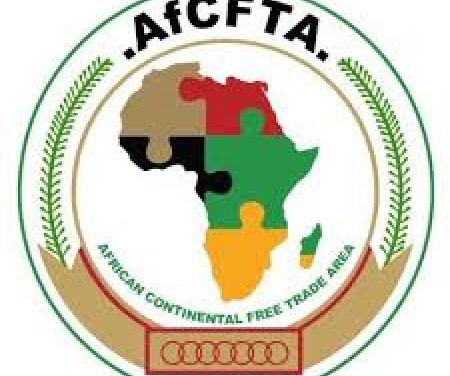DESCRIPTION OF DUTIES/RESPONSIBILITIES: The contracted law firm is responsible for all submitted documents and must ensure that they are not plagiarised. Any plagiarism, copying or closely reproducing another’s work without accrediting the legitimate author, in the documents submitted would result in a refusal of the submitted document. The contracted law firm will work under the direct guidance and overall supervision of the Senior Officer, Business and Trade Policy, TFPB, and closely with the International Consultant (IC) throughout the assignment.
The law firm be responsible for the following tasks: 1. Undertake capacity building, research and consultations for the regulatory mapping of services sectors: Timeline: September – Mid-November 2020 First, the law firm will undertake capacity building on how to conduct the regulatory mapping. Among other things, the capacity-building session led by the IC will present and explain how to use the questionnaire and spreadsheet to complete the assignment.
The questionnaire and spreadsheet provided by the IC will be designed to facilitate the law firm’s work of collecting, mapping and reviewing the legislation/regulation related information, as well as identifying offensive and defensive interests. This will be carried out bearing in mind that the regulatory mapping will serve as a key background element for the formulation of Schedule of Commitments for AfCFTA TiS negotiations and, together with the regulatory assessment, will be critical for the development of relevant regulatory frameworks.
Second, in line with the instructions provided during the capacity building, the law firm will undertake desk research to gather and review the relevant legislation as well as to provide a general overview of services sectors: - identifying and reviewing the sectoral laws and policies that directly govern or impact on the 5 sectors to be covered (i.e. transport, communication, tourism, financial, and business services), as well as the relevant horizontal ones (e.g. investment laws, labour laws, immigration laws, etc.), also looking at areas that may contain relevant cross-sectoral and supply chain dependencies.
- mapping the governance framework, including by identifying the relevant stakeholders and their responsibilities (ministries,regulatory agencies,other stakeholders including from private sector)
- mapping and reviewing the services sector/relevant sub-sectors and their contribution to the economy, as well as reviewing recent trends, structural changes and strategic orientations reflected in major policy documents. This should include a regional perspective.
Third, the law firm will conduct various focus group discussions and bilateral meetings with the relevant categories of stakeholders (public and private), in order to assess de facto conditions in the industry (including regulatory gaps and trade restrictive measures), inform any possible reforms, and identify offensive and defensive interests for the AfCFTA negotiations on trade in services (TiS).
This will be done by:
- drawing up a list of relevant stakeholders to consult, based on the related desk research task mentioned above;
- scheduling the focus group discussions and bilateral meetings with the assistance from MOTIE, which will involve circulating the questionnaires to the stakeholders in advance;
- making use of the questionnaire and the spreadsheet to conduct the consultations.
1. Complete the regulatory mapping spreadsheet and review of the sector regulations of and draft a report providing an overview of the sector/relevant sub-sectors and identified offensive/defensive interests for AfCFTA TiS negotiations. Timeline: First Draft: end October 2020; Second Draft: Mid-November 2020
The completed spreadsheet should include inter alia:
-the measures affecting services trade and investment;
-the nature/current status of the measures;
-the corresponding horizontal and sectoral legislation/regulations;
-a brief explanation of these legal texts;
-modes of supply; -regulatory goals;
-specifying if the measure is discriminatory or not;
-possibly related recent reforms or information about proposed reforms;
-current sectoral strategies;
-responsible ministries and agencies, and key stakeholders.
The regulatory mapping will include a review of the consistency of the measures, or the identification of areas where gaps exist, with regard to commitments under the GATS and possibly other agreements. It will review how the legislation/regulations are applied in practice and identify gaps, which will also involve looking at other areas than the five priority services sectors in order to capture cross-sectoral and supply chain dependencies and to address related issues.
The law firm will also provide a comprehensive list of horizontal laws and regulations that affect trade and investment in the five priority services sectors, as well as the related responsible ministries and agencies and other key stakeholders.
The law firm will use the information obtained through the consultations and the review of documents to produce a 3-4 page report providing an overview of the service sector/relevant sub-sectors and their contribution to the Gambian economy, key findings, recent trends, structural changes and strategic orientations, and a preliminary identification of offensive and defensive interests for the AfCFTA TiS negotiations. This should include a regional integration perspective.
ITC and the IC will provide more information about the specific issues to be addressed, as well as guidance on the assigned tasks and feedbacks on all the outputs produced.
After submission of the drafts of the regulatory mapping to the IC, and subsequently to MOTIE and ITC, the law firm will incorporate the feedbacks (including those provided during the national consultative workshop mentioned below) and may be requested to produce revised versions of the mapping, which may involve additional consultations and/or desk research work.
2. Jointly with the International Expert, present the results of the regulatory analysis at a National Consultative Workshop on Trade in Services in the AfCFTA Context, with public and private sector stakeholders Timeline: November 2020
Any Law Firms registered in the Gambia interested in this assignment is invited to express its interest by sending the profile of the firm by Friday 28 August at 23:59 GMT to mmehamha@intracen.org. The profile should include a short background on the Law Firm and its capabilities, its relevant work/project credentials, as well as a presentation of the profiles of project team members. For any further information related to this assignment, please contact Mr. Mehdi Mehamha at the above-mentioned email address.
